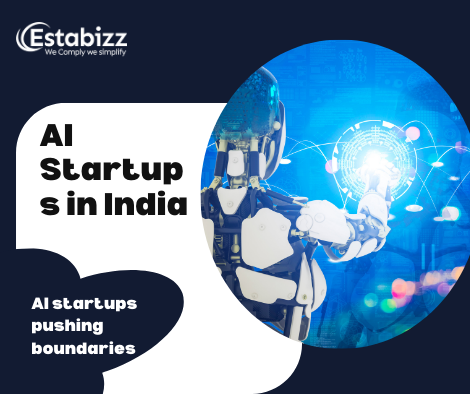India’s Generative AI Startups Explore New Frontiers Beyond ChatGPT

In recent developments from New Delhi, startups like Sarvam and Adya.ai are spearheading India’s charge into the burgeoning field of generative artificial intelligence (AI). However, they’re charting a distinct path by venturing beyond the realms of large language models akin to ChatGPT. This strategic pivot towards industry-specific applications not only offers a clearer path to monetization but also sidesteps the fierce competition from AI behemoths.
Sarvam’s Innovative Dual Approach
Sarvam, an emerging full-stack generative AI enterprise, embraced a novel strategy following its substantial $41 million capital influx from renowned venture capital entities, Lightspeed and Peak XV. The startup is at the forefront, developing expansive Large Language Models (LLMs) proficient in myriad human languages. This technological foundation paves the way for creating specialized ‘Agents.’ These entities are adept in specific domains such as healthcare, financial services, and law thanks to their training on niche datasets.
For instance, in healthcare, Sarvam’s generative AI assistants offer neonatal advice to expectant mothers at a nominal cost of ₹1, as shared by Pratyush Kumar, co-founder of Sarvam and an adjunct faculty at IIT Madras. This breakthrough initiative aims not to replace doctors but to democratize access to healthcare across India’s vast populace.
Venturing Beyond General Purpose AI

The shift towards domain-specific solutions signifies a tactical move by startups like Sarvam and Adya.ai, moving away from the initial buzz of creating universal AI models like the ones seen with ChatGPT or Google’s Gemini. The realization that tackling smaller, targeted problems could spell greater success is becoming widespread.
Ankush Sabharwal, co-founder of CoRover, echoes this sentiment. With their creation of BharatGPT, they emphasize the necessity of addressing precise issues. The disparities between needs in urban centers and rural areas underscore the importance of tailor-made AI models, steering clear from the shadow of Big Tech.
Adya.ai: A Case Study in Specialization
Adya.ai stands as a testament to the potential of sector-specific AI applications. Following a $1.2 million seed funding led by the Indian Angel Network, the startup is honing its AI models to serve as deployable customer service agents for the e-commerce and retail sectors. CEO Shayak Mazumder envisions branching into more domains, underscoring the scalability of domain-focused AI applications.
The Path to Monetization and Challenges Ahead
Sector-specific AI applications, according to tech analyst Kashyap Kompella, strike the perfect balance in terms of development costs, market opportunity, and monetization strategies. This approach has been lucrative for India’s early-stage startups, with entities like CoRover projecting annual revenues nearing $5 million by FY25.
Yet, embarking on this journey is not devoid of hurdles. The dearth of domain-specific data poses significant challenges, as pointed out by CoRover’s Sabharwal. The solution lies in leveraging publicly accessible data sources and a collaborative model where clients contribute domain-specific data, ensuring a tailored and effective deployment of AI solutions.
While the strides India’s generative AI startups have taken are commendable, their journey is far from complete. Their evolution signifies a transition from rudimentary chat automation to sophisticated, interactive AI agents capable of engaging in multiple local Indian languages. This linguistic versatility is key for startups like Sarvam and others as they strive to broaden customer support and cater to a diverse customer base.
Breaking Language Barriers
Startups such as Bengaluru’s Yellow.ai and Pune’s E42.ai have spent over half a decade perfecting conversational agents. With the advent of generative AI, newer ventures are elevating this technology, presenting more dynamic and cost-effective AI solutions. The focus on integrating local languages is not just about inclusivity but also about tapping into new market segments and offering personalized user experiences.
Collaborative Platforms and Data Solutions
Addressing the data scarcity issue, platforms are being designed to allow enterprise customers to choose from a range of foundational models. This flexibility empowers clients to build virtual assistants that align with their specific needs using BharatGPT, ChatGPT, or Google’s Gemini as their base.
Sarvam’s founder, Pratyush Kumar, acknowledges the challenges of limited data, especially in Indic languages. However, he remains optimistic, citing the availability of public data sources and the decreasing costs of running domain-specific models as viable steps towards overcoming these obstacles. The focus is on maturing these applications, refining their accuracy, and preparing them for full deployment within their respective sectors.
The Road Ahead
The road ahead for India’s generative AI startups is filled with promise and potential. The objective remains clear: to create AI solutions that are not just technologically advanced but also practical and accessible. The milestones achieved by startups like Sarvam and Adya.ai serve as beacons for countless others, encouraging innovation tailored to India’s unique landscape.
In summary, as India’s generative AI startups look beyond ChatGPT-like models, they solidify their presence in a competitive market by offering specialized, cost-effective solutions. They aren’t merely surviving; they are setting a precedent, shaping a future where generative AI is an integral part of business strategies and everyday life. With their vision, these startups are not just part of the AI narrative – they are redefining it.
Conclusion
India’s generative AI startups, by looking beyond ChatGPT-like models and adopting a domain-focused approach, are not just navigating the complexities of AI innovation but are also carving a niche for themselves. As these enterprises continue to scale and evolve, their journey heralds a new chapter in India’s technological advancement, one that is inclusive, innovative, and immensely impactful.
Estabizz Fintech compiled the material in this article using the most recent Acts, Rules, Circulars, Notifications, Provisions, Press Releases, and material applicable at the time. They ensured the completeness and correctness of the material through due diligence. When using this material, users must consult the relevant, applicable legislation. The given data may change without prior notice and does not constitute professional advice. Estabizz Fintech disclaims all liability for any results from the use of this material.





